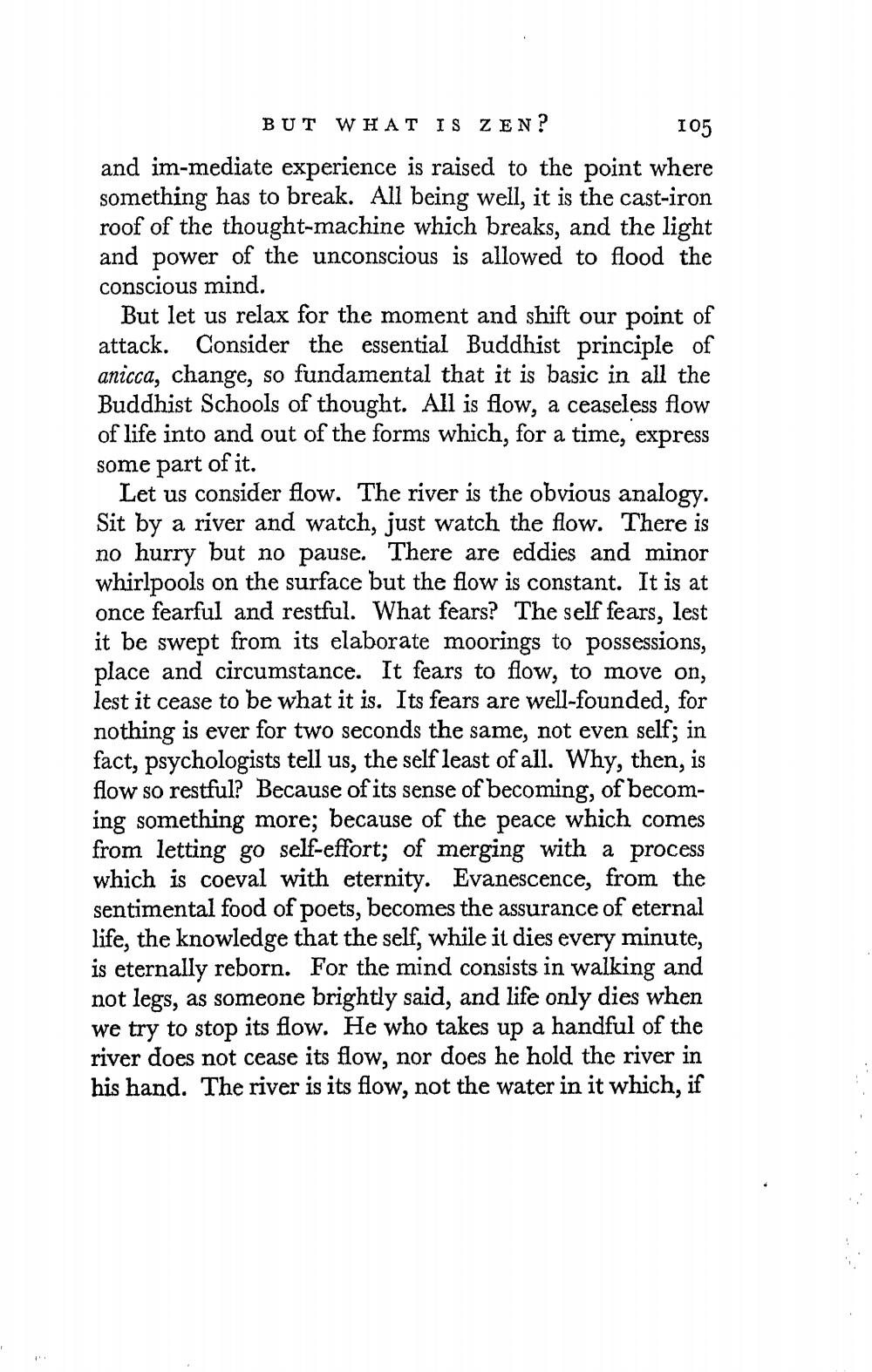________________
BUT WHAT IS ZEN?
105 and im-mediate experience is raised to the point where something has to break. All being well, it is the cast-iron roof of the thought-machine which breaks, and the light and power of the unconscious is allowed to flood the conscious mind.
But let us relax for the moment and shift our point of attack. Consider the essential Buddhist principle of anicca, change, so fundamental that it is basic in all the Buddhist Schools of thought. All is flow, a ceaseless flow of life into and out of the forms which, for a time, express some part of it.
Let us consider flow. The river is the obvious analogy. Sit by a river and watch, just watch the flow. There is no hurry but no pause. There are eddies and minor whirlpools on the surface but the flow is constant. It is at once fearful and restful. What fears? The self fears, lest it be swept from its elaborate moorings to possessions, place and circumstance. It fears to flow, to move on, lest it cease to be what it is. Its fears are well-founded, for nothing is ever for two seconds the same, not even self; in fact, psychologists tell us, the self least of all. Why, then, is flow so restful? Because of its sense of becoming, of becoming something more; because of the peace which comes from letting go self-effort; of merging with a process which is coeval with eternity. Evanescence, from the sentimental food of poets, becomes the assurance of eternal life, the knowledge that the self, while it dies every minute, is eternally reborn. For the mind consists in walking and not legs, as someone brightly said, and life only dies when we try to stop its flow. He who takes up a handful of the river does not cease its flow, nor does he hold the river in his hand. The river is its flow, not the water in it which, if




